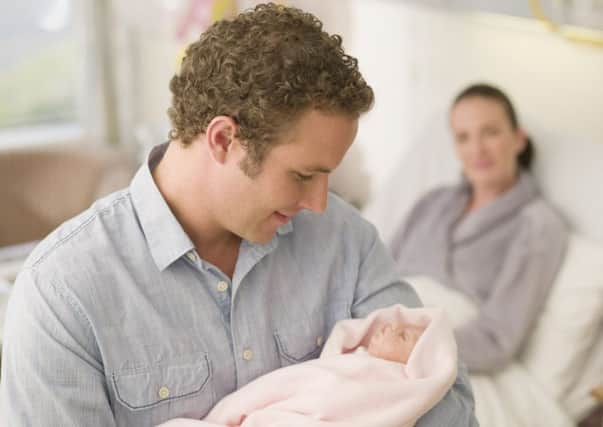Selling surrogacy is a step towards slavery as women are dehumanised


The practice of surrogacy is an agreement, whereby a woman accepts to gestate and give birth to a child for another individual or couple, who will then become its legal parent(s).
These are usually persons who cannot gestate a child for themselves for a number of reasons such as when the medical condition of a woman makes it dangerous for her to become pregnant or when a male couple desires to have a child.
Advertisement
Hide AdAdvertisement
Hide AdThere are generally two kinds of surrogacy arrangements. The first is called ‘traditional surrogacy’ (also known as genetic surrogacy) in which the surrogate woman also provides the egg and is therefore the genetic mother of the resulting child.


The second is called ‘gestational surrogacy’ (also known as full surrogacy) whereby an embryo is created by in vitro fertilisation (but without the use of the surrogate’s egg) which is then implanted into this woman for gestation. This means that the surrogate is genetically unrelated to the future child.
In both cases, when such surrogacy arrangements involve a financial incentive, they become commercial surrogacies.
Such practices, however, are extremely controversial since commercial surrogacy is not a normal procedure. Indeed, asking a mother to give up the child she has gestated is not something anyone would see as desirable.
Moreover, making this meaningful for the woman through payment does not make it any more ethical. Instead, it represents one of the most unacceptable forms of exploitation being done against women.
In addition, it is not because the arguments use language making surrogacy seem nuanced and careful that the procedure is any less controversial.
Calling a woman a ‘carrier’ or ‘gestator’ is unacceptable in relation to any human being since it reduces her to a biological process. Moreover, erasing any reference to the woman’s humanity and her status as a mother cannot ever be seen as responsible or appropriate.
Such an alteration of the language encourages the surrogate and society to disconnect and deny what the woman is really experiencing in order for her to be able to separate herself from the child.
Advertisement
Hide AdAdvertisement
Hide AdIndeed, it is necessary for her to believe that this child is not really her child, to repress her emotions, to convince herself that this abandonment is done for the good of others. Furthermore, such ‘linguistic cleansing’ may be aimed at making invisible the market aspect of contractual transactions which amounts to the sale of babies.
This is confirmed at the international level with the United Nations Special Rapporteur on the Sale and Sexual Exploitation of Children explaining, in 2018, that “if a surrogate mother or third party receives remuneration or any other consideration for the transfer of the child, a sale occurs, as defined under international human rights law.”
The industrialisation of births has already begun, and biomedical reproductive capitalism introduces an exploitation aspect that is more pernicious and more effective than any other. Indeed, a woman’s agreement appears to be the green light to justify any practice based on her life or her body.
But to say that women are agreeing to become commercial surrogates is to forget the conditions under which they are led to agree and to neglect the reasons for which they have accepted to be exploited. An agreement is not a desire, it is not a will, it is not freedom.
In France, the National Consultative Ethics Committee has already clearly stated, in 2018, its extreme concern relating to the expansion of the international market for commercial surrogacy. This has been encouraged by commercial agencies and lobby groups presenting and showcasing positive images of the surrogacy market in the media.
The reasons why this French committee has reiterated its opposition is that it remains determined to retain the principles that justify the prohibition of commercial surrogacy in France on the basis, amongst other things, of respect for the human person who cannot be exploited.
On this account, presenting commercial surrogacy in a positive manner should be seen as being as shameful as presenting the possibility of slavery. This is because a woman would be selling her body for reproduction which is completely unethical.
Of course, a lot of compassion should be shown to the very real suffering of persons who cannot gestate their own children, but compassion also demands protecting women from unacceptable exploitation.
Accordingly, the UK parliament should never countenance the legalisation of commercial surrogacy.
Dr Calum MacKellar, Director of Research of the Scottish Council on Human Bioethics